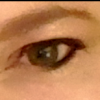Search the Community
Showing results for 'alcohol'.
Found 17,501 results
-


Concerned About What I'm Leaving Behind!
emily_0192010 replied to Dizzle's topic in PRE-Operation Weight Loss Surgery Q&A
First off, I think what you are feeling/thinking is completely normal!! Those habits we've created are like a child's security blanket in a lot of ways. I was more nervous about all of the little things than the actual surgery... and I think I was actually nervous about the surgery but projecting it onto the little things that were easier to worry about. As for the beer... I was similar to you. I had my surgery when I was 20, and I just turned 21. I kept thinking "what if I can't *really* Celebrate my 21st birthday because I can't drink??". Did I really care about drinking? No, not really. But I didn't want to feel like I was losing something. I asked my surgeon specifically if alcohol was allowed and at what stage. He said I would be fine for my birthday (which was at the 5 month mark) but to be careful because... it hits you soooo much stronger and more quickly then it normally would. So you may be bummed that it will take you an hour to drink that beer, but guess what? It'll feel like you had more than one for sure! Please be careful though that you don't create a cross-over addiction. I am not saying you will, but just be aware I ended up not missing my drink and food at the same time, but now that I'm 6 months out I do occasionally have some liquids while I eat, but generally it isn't that much at all. Eventually you'll find a groove that works for you. The first couple months are the hardest because you are the most restricted. But at the same time, it is all mental and not physical cravings, which is a little easier than dealing with both at the same time. Overall it is a huge difference, but you seriously don't feel deprived. You have a few bites of food and you feel like you pigged out during thanksgiving. It IS satisfying because you feel good AND know that you didn't overeat... it is amazing really, especially once you pass the 3, 4 month mark. Good luck and keep us updated! -
I'm not much of a drinker to begin with, but I'll admit that I had a sip of wine at 5 weeks out because it was my birthday. It kinda burned a little going down but otherwise did nothing. It was one sip of wine, no need to slam me. I had my first real drinks at 3 months out. I had 3 glasses of wine over the course of an evening. Guess what.. no difference at all in how I was affected. Nice little buzz but I wasn't falling down drunk, blacking out, or acting stupid. I haven't tried hard booze yet, but I can say from experience that wine affects me exactly the same way it did pre-surgery. If I want to get stupid drunk on wine, I'll have to drink a considerable amount of it. Fortunately I have no desire to get stupid drunk (or pile in all those extra calories.) As for weight loss, drinking is bound to have an adverse effect. Calories aside, the body will burn alcohol before anything else, so while you are burning alcohol, you aren't burning through those evil carbs or, in the absence of carbs, attacking the fat. All that said, I WILL be drinking 4th of July weekend and I might maybe possibly even choose to get drunk. If I gain weight over the weekend, it will be my own fault and I will pay for it and fix it. Even we sleevie peeps gotta live a little once in a while. Again, I'm not much of a drinker in any case, but I would say that anyone who has a great liking for alcohol should just avoid it entirely.
-
Hey everyone I was wondering when is it ok to go out for drinks like beers or liquor I'm 2 months out I know I sound stupid but it's gonna be 4th of July and I want to Celebrate Sent from my iPhone using the BariatricPal App
-
This is an open forum...no one is preaching. We only share opinions and best practices. There is really no need for sarcasm. Obviously Cheryl has some valid insights to share...she is a success story. She is someone who knows what she is talking about... And there is a significant difference in regards to "low carb" versus "no carb" meal plans. We need carbs in our diet, as the brain can only use carbs to function. The important difference is in making the carbs we choose healthy. Alcohol and over processed "white foods" are examples of unhealthy "empty calorie" carb choices. Healthier carb choices would be unprocessed cooked oatmeal instead of over processed "Special K" (read the label of ingredients; if they have to add nutrition back into the cereal because they removed the nutritional value when they processed it to manufacture it, it is an over processed carb). There is a definite difference in the carb value between pizza dough and blueberries. If you look into the research completed looking at the long term outcome of those who have followed the Atkins Diet plan, you will see that over time they modified the diet to include carbs and healthy Fiber rich foods. Our long term health will be affected if we ate a "no carb" diet. Again, this is only my opinion...it works for me. Other's mileage may vary. And I will always advocate for any forum participant to follow the instructions given them by their medical team.
-
I was told 3 months. I think around 3.5 months I had like 2 sips of wine. I went to a Christmas party and I had a drink that I took 2 sips of and just carried around all night. I gave up alcohol long before surgery, and it just doesn't interest me. I will fake it though in social settings. I also really don't like the warm feeling of alcohol in my stomach, as soon as I take a sip my stomach is on simmer, no thanks.
-
Your 100% correct Paul but sorbitol is also used as an artificial sweetner in some foods. We don't dump it in our coffee but it is in alot of products like sugar free gum and mints and folks should be aware. I think low carb diets are wonderful (not no carb imho) but a clean low carb. From Wikipedia encyclopedia. Sorbitol, also known as glucitol, is a sugar alcohol the body metabolises slowly. It is an artificial sweetener often used in diet foods. It is called a nutritive sweetener because it provides 2.6 calories (11 kilojoules) per gram versus the 4 calories (17 kJ) of sugar and starch. Sorbitol is poorly digested by the body. It is also used as a humectant in some cigarettes. Sorbitol is also produced by the body. Too much sorbitol in cells can cause damage. Diabetic retinopathy and neuropathy may be related to too much sorbitol in the cells of the eyes and nerves. Ingesting large amounts of sorbitol can lead to some abdominal pain, gas, and mild to severe diarrhea. Sorbitol can also aggravate irritable bowel syndrome. Sorbitol is often used in modern cosmetics as a humectant and thickener. Some transparent gels can only be made with sorbitol as it has a refractive index sufficiently high for transparent formulations. Sorbitol is used as a cryoprotectant additive (mixed with sucrose and sodium polyphosphates) in the manufacture of surimi, a highly refined, uncooked fish paste most commonly produced from Alaska (or walleye) pollock (Theragra chalcogramma).
-
So I'm THREE days away from my surgery...more than a year into this program.my surgery is covered by my state insurance and I have complied to every criteria they have laid out. 6 months of nutrition classes, endoscopy, psych testing, quit smoking, don't do druids, don't drink, gave up coffee, lost 49 lbs, got the IVC filter...and 4 days before the surgery, they decide because I mentioned once in one of my many doctor visits in the past 6 months that I drink occasionally, that I did not follow the criteria for my state to cover the surgery. The thing is. I haven't had a drink, but I have consumed alcohol at random points in my life...weddings...party...once in a blue moon. I had to practically beg the lady at my state insurance co to believe me and I got an "I'll email the decision team and we will let you know." For real? Can this be before I start the Clear liquids diet on Wednesday and are you trying to test me??? Ugh. Thanks for letting me vent.
-
Hi, I was on Effexor prior to surgery and quit right before my VGS surgery and stayed off for a week after. When I went back to them I went back to my regular dose and threw it up almost immediately. It made me so sick! Even after I cut my dose down to a quarter of what it was, I was still nauseated and sick after taking it. I wound up giving it up. Its been hard, not having them, alcohol or food to help my mood, but I am doind ok. Some days are better than others. Im trying Kava powder and exersize. I hope that you will have a better tolerance for the meds, but if you don't, I wish you the best. Sent from my SM-N950U using BariatricPal mobile app
-


Girls weekend wine !?
Indymom replied to kayseegee's topic in POST-Operation Weight Loss Surgery Q&A
I don't think it's a good idea this early out, you're still healing. My doc recommends at least 3-6 months before alcohol. There can also be detrimental impact to your liver as it's working overtime due to rapid weight loss. -


Girls weekend wine !?
queenmab replied to kayseegee's topic in POST-Operation Weight Loss Surgery Q&A
I say go for it! My philosophy is that you have to LIVE your life and squeeze as much joy out of it as you can. So, if that means you have a glass of wine occasionally, you should do it. Remember, however, that alcohol can lead to an increase in appetite and MINDLESS eating. So, be careful. I am 6 weeks out and had a glass of wine at my girlfriend's birthday at 3 weeks out. I took tiny sips all night long and really made it last! Plus, I carried the glass with me in one hand and a napkin in the other, so I had something in my hands all the time, which made me really think everytime I found myself reaching for chips and finger foods or the desserts that folks brought to the party. Good luck! -


When is it a food addiction, and when is it just overeating?
HetKF replied to ouroborous's topic in Gastric Sleeve Surgery Forums
Best answer Living to Eat: Do You Have a Food Addiction? By Meghan Vivo Jane sneaks out of the house at midnight and drives six miles to the local 7-Eleven to get a chocolate bar. This has become a nightly ritual. She's gaining weight and feels profoundly ashamed of her lack of self-control. Though she vows to stop this behavior, she can't seem to shake the craving night after night. Jane is a food addict. In many ways, food can closely resemble a drug - caffeine and sugar offer a quick pick-me-up while carbohydrates and comfort foods can help soothe and relax the mind. Some people use food, like drugs, to feel at ease in social situations or to unwind after a long day. If you think about food constantly throughout the day, have compulsive cravings for certain types of foods, or waste more than half of your daily calories binging on unhealthy Snacks, you may be one of the 18 million Americans who suffer from food addiction. What Is Food Addiction? Food addiction, like any other addiction, is a loss of control. Food addicts are preoccupied with thoughts of food, body weight, and body image, and compulsively consume abnormally large amounts of food. Even though they understand the harm caused by their behavior, they just can't stop. Food addicts tend to crave and eat foods that are harmful to their bodies. For example, people with food allergies may crave the foods they are allergic to, while diabetics may crave and overindulge in sugar, despite the adverse effects. Food-aholics generally gorge on fat, salt, and sugar in the form of junk food and sweets. If they are feeling depressed, lonely, or disappointed, they consume large amounts of chips, chocolate, or other comfort foods for a "high." As with most addictions, the high wears off, leaving the person feeling sick, guilty, and even more depressed. Because the addict is out of control, she will repeat the same eating patterns over and over again in an effort to feel better. Compulsive overeaters often eat much more rapidly than normal and hide their shame by eating in secret. Most overeaters are moderately to severely obese, with an average binge eater being 60% overweight. Individuals with binge eating disorders often find that their eating or weight interferes with their relationships, their work, and their self-esteem. Although compulsive overeaters or binge dieters often struggle with food addiction, eating disorders like anorexia and bulimia are also considered types of food addictions. Addiction or Bad Habit? Unlike drug and alcohol addiction, which have been recognized by the medical profession for years, addiction specialists still question whether food can be genuinely addictive. Is the obsession with eating a true addiction, or just a bad habit? Some experts are quite skeptical of putting food in the same category as drugs or alcohol. They argue that people like junk food because it tastes good, not because they are physically incapable of controlling their behavior. Others contend that individuals who abuse substances in excess of need, despite the harm it can cause, are addicts, whether the substance is alcohol, drugs, or food. In some cases, food addicts trying to break the habit claim to experience both physical and emotional withdrawal symptoms such as headaches, insomnia, mood changes, tremors, cramps, and depression. In an animal study at Princeton University, researchers found that after rats binged on sugar, they showed classic signs of withdrawal when the sweets were removed from their diet, which suggests foods like sugar can be addictive. Brain imaging studies conducted by scientists at the U.S. Department of Energy's Brookhaven National Laboratory have found that food affects the brain's dopamine systems in much the same way as drugs and alcohol. Dopamine is a neurotransmitter associated with feelings of pleasure and reward. When psychiatrist Nora D. Volkow, director of the National Institute on Drug Abuse, and her colleagues compared brain images of methamphetamine users with obese people, they found both groups had significantly fewer dopamine receptors than healthy people. Moreover, the higher the body mass index, the fewer the dopamine receptors, which may explain why it is so difficult for some people to lose weight and keep it off. Are You a Food Addict? Whether the obsession with food is a true addiction or simply a bad habit, one thing is clear: Your health is on the line. Obesity, psychological disorders, and diabetes are just a few of the health risks associated with compulsive eating. If you're worried that you may have a food addiction, FoodAddicts.org recommends that you answer the following questions: Have you ever wanted to stop eating and found you just couldn't? Do you think about food or your weight constantly? Do you find yourself attempting one diet or food plan after another, with no lasting success? Do you binge and then "get rid of the binge" through vomiting, exercise, laxatives, or other forms of purging? Do you eat differently in private than you do in front of other people? Has a doctor or family member ever approached you with concern about your eating habits or weight? Do you eat large quantities of food at one time? Is your weight problem due to your "nibbling" all day long? Do you eat to escape from your feelings? Do you eat when you're not hungry? Have you ever discarded food, only to retrieve it and eat it later? Do you eat in secret? Do you fast or severely restrict your food intake? Have you ever stolen other people's food? Have you ever hidden food to make sure you have "enough?" Do you feel driven to exercise excessively to control your weight? Do you obsessively calculate the calories you've burned against the calories you've eaten? Do you frequently feel guilty or ashamed about what you've eaten? Are you waiting for your life to begin "when you lose the weight?" Do you feel hopeless about your relationship with food? If you answered "yes" to any of these questions, you may have, or be in danger of developing, a food addiction or eating disorder. Although food addiction is not nearly as intense as alcohol and drug addictions, you may need help regaining control of your life. Treating Food Addiction Change is never easy, and overcoming food addiction is no exception. It will require a combination of discipline, healthy eating habits, and exercise. In many ways, treatment of food addiction is similar to drug and alcohol addiction. The first step to recovery is recognizing and accepting the problem, and identifying which foods cause allergic symptoms and cravings. However, unlike drug and alcohol addiction, food addicts can't quit cold turkey. Everyone has to eat. Instead of taking drastic measures, make the following changes gradually, one small step at a time. Reprogram your taste buds. If you eat tons of sugar-laden foods, your taste buds get used to the flavor and you will start craving sweeter and sweeter foods. When buying foods that aren't supposed to be sweet, like Pasta sauce, bread, and crackers, make sure they don't have added sweeteners like fructose, dextrose, and corn syrup. Slowly try to limit sweet or salty foods in favor of fruits and vegetables to restore the sensitivity in your taste buds. Plan your meals. Food addicts often hide food or binge when they are alone. One way around this is to avoid hiding a stash of food in your car, desk, or nightstand. Also, plan out healthy meals in advance, portion out single servings on smaller plates, and eat scheduled meals at the dinner table. If you eat in front of the TV or while talking on the phone, you're more likely to eat large amounts of food without realizing it. Though it may take a few weeks to change your eating patterns, your brain will eventually get used to smaller portions of healthy foods and generate fewer snack-food cravings. Moderate your hunger. People with food addiction tend to take an all-or-nothing approach to dieting, bouncing from ravenous to overstuffed. A useful tool to moderate food consumption is to rate your hunger on a scale of zero to ten, zero being starving and ten being overstuffed, then try to stay between three and five. If you wait until you hit zero, you may not stop eating until you reach ten. Know your weaknesses. Everyone has a list of foods that are hard to turn down. If you can't resist a fine loaf of bread at a restaurant, ask the waiter not to bring the bread basket to your table. If you can't walk past an ice cream parlor without stopping for a scoop or two, take a different route. If you have a habit of eating Cookies or popcorn while watching TV at night, read a book or walk the dog instead. If these tricks don't work, stop buying unhealthy foods at the grocery store. If it's in your kitchen, you're probably going to eat it. Deal with the real issues. Typically a food addict will numb unpleasant feelings with food. If you stop relying on food, you can learn to tackle problems head-on and let yourself feel the sadness, anger, or boredom without using food as a crutch. Find healthy ways to cope. For food addicts, the next salt or sugar fix becomes the dominating force in their life. The best treatment is to find other ways to fill the void, like working out, hiking, going out with friends, or talking to a therapist. Exercise sparks the same pleasure centers of the brain as food, and offers a similar high without the guilt. If you're not physically hungry but you're struggling to resist a craving, brush your teeth, drink Water, leave the house for a few minutes, or choose a healthy substitute like yogurt instead of ice cream or baked chips instead of potato chips. Give yourself a break. The guilt people feel after overeating perpetuates the addiction. They're sad because they ate too much, so they turn to food for solace. Learn to forgive yourself and don't get discouraged by minor setbacks. Food addiction can be a serious problem. Just ask the people who habitually visit the drive-thru at midnight or load up on candy bars on a daily basis. To beat the addiction, sometimes all you need is motivation to change and a few lifestyle modifications. In more severe cases, you may need to seek help from a food addiction group like Overeaters Anonymous, a mental health professional, or an addiction treatment center. In either case, a shift in outlook must occur: Eat to live, don't live to eat. Other resources and articles: -


When is it a food addiction, and when is it just overeating?
Jane_J replied to ouroborous's topic in Gastric Sleeve Surgery Forums
But the VSG does not really hep with alcohol, it just passes through if you do it before eating, and then you fall over very fast. Cheap though. Very hard to judge and easy to over cook it so to speak. (from experience!!) -


When is it a food addiction, and when is it just overeating?
LAN2k replied to ouroborous's topic in Gastric Sleeve Surgery Forums
Without giving you an official or text book definition I'm inclined to think of food addiction as an emotional obsession with food, and eating. I grew up with alcoholism and a very volatile relationship between my parents. I have obsessed over food ever since I can remember. Always wanting more and if I couldn't get enough to satisfy my craving I would figure out ways, places, and times, that I could. As a child for example, if at breakfast there were only so many pancakes shared between family, I'd imagine myself surrounded by pancakes dripping with butter and maple syrup. I'd seek out other foods to gorge myself with...salty, sweet, whatever! I'd find ways to compensate, usually while alone or with a friend that also liked to over-indulge in eating. The food never really satisfied me so I would keep foraging through food as if my life depended upon it. This behavior caused self loathing, shame, guilt...and diets, doctors, pills, bouts with bulimia, (I did alot of sneak eating, binging and purging...) This is not normal behavior and best resembles addiction. I always felt out of control. I hated myself for the urges, binging and nagging desire for more. I substituted food for emotional needs which went unmet. It felt like a self perpetuating trap for which I don't fully comprehend. Since the VSG, I am no longer able to "treat" myself, (as before), with food. I would not assume that everyone who is overweight to obese is that way due to a food addiction per se, but I do believe that I am and have been since childhood. -


Any good scar remedies?
Grandma26 replied to Taylertot's topic in POST-Operation Weight Loss Surgery Q&A
I always understood that you shouldn't put any ointments or creams on fresh incisions. Check with you doctor before using anything on them. You don't want to risk infection. I only used alcohol wipes to make sure they stayed dry and clean. I am 9 weeks post op and my incision are slightly pink, two of the smaller ones you can hardly see anymore. -
Are you just adding your GENEPRO to plain Water? That could be why ou can taste it. If you drink coffee, tea or something hot it works great!! But...add it to a little hot water and whisk it a little before you add it to something. My hubby adds it to his chocolate Almond Milk, do the same thing with a whisk. I have done that also. But I have to shoot it like a shot of alcohol. LOL
-
So, I had my 6 week check in today and all is well. Weight loss is on track...27 lbs down. I do need to increase my calories. I've been around a thousand and the doctor and dietician would like to see me at 1200-1500, particularly before I start going to the gym. While I was there, I asked how long I needed to wait before I could have a glass of wine. I expected to hear 6 months to a year based on what others have posted. I was surprised when the dietician said that I could have started a couple weeks ago! Of course they gave the usual caveats...empty calories and take it slow to see how I react. Just thought I'd share since I know that question comes up a lot
-
I am in need of recommendations for proper sugar free popsicle brands. You know the ones without the sugar or sugar alcohols? I have a friend shopping for me and it's hard to find the "right" sugar free as directed by my surgeon and nutritionist. Sent from my SM-N910P using BariatricPal mobile app
-
I've been banded since Aug and started experimenting with alcohol about 2 months out. Being in grad school, it was nice to be able to go out with friends. A few things to keep in mind: 1) double check with your doctor if it's ok 2) you won't be able to have a lot 3) instead of getting big drinks, ask for shots (or shot versions of your drinks) that way you get the taste of it without the calories or immense amount of liquid. Good luck and have fun!
-
I just turned 21 6 months ago and I'm about 6 weeks post op. I was wondering if anyone had tried drinking so soon after surgery? I know your not supposed to drink at least 6 months after surgery, but it seems to be really hard because all of my friends want to go out! Now I'm not talking about anything crazy because I know how alcohol is like pure calories but I was thinking maybe half a glass of wine or something. What are your thoughts?
-
I am 10 months out. Yes there is a very very small chance of a leak which is usually out of your control. I think the stats are 1%. Personally I have had no issues except a few gallbladder attacks from losing weight too quickly - which a lot of us unfortunately have to deal with. I can eat and drink whatever with no issues including alcohol it is the same for me as before. I have not experienced any form of dumping. So I still have my "treat" days. Weddings, parties etc. I am at first goal now of a normal BMI for the first time in my life and of course I have no regrets! My only concern now is maintenance and keeping vigilant about regain etc. Goodluck with your surgery and decision
-


Mushy Food Ideas Wanted
kbinaz replied to bandedbyrd's topic in POST-Operation Weight Loss Surgery Q&A
I just returned from a cruise and came home 1/2 pound lighter than when I left! It was a little frustrating at times - cruises are known for their good food, in abundance! The good thing about it is that the portions are not huge so you can order a few courses and eat a bit of each and not overdo it. I'd order salad and an entree at dinner (when everyone else ordered appetizers and soup besides) and only eat a few bites of each (I'm really tight, had a fill just before I left - I wanted to be tight, I know that's weird but I couldn't bear the thought of gaining anything) I ordered dessert almost every night at dinner and still lost that 1/2 pound. Some tips: I took the stairs instead of the elevator whenever possible. I walked a lot on shore excursions (I tried to choose ones that I knew involved lots of activity) I didn't drink calories - I know that's really hard for some people, but I'm not a huge drinker so not having alcohol wasn't that huge a deal for me - I'd rather have ice cream than a margarita. I drank water. I didn't eat anything between meals (that wasn't that hard - I ate enough at meals that I wasn't hungry between meals, half the time I wasn't hungry when I sat down to a meal either!) Have fun on your cruise! -

Alcohol...how much with the sleeve?
Kindle replied to JakeLancaster's topic in Gastric Sleeve Surgery Forums
I would suggest having a drink or two in the "Safety " of your own home before going out on the town. Like trying any new thing postop, you never know how your body will react. You want to make sure you won't puke or dump. You also want to gauge how alcohol affects you now. So many people report how they get tipsy on just a little bit. I was looking forward to that. But nope, I can still out drink a football team. My alcohol tolerance followed me into postop life. -
Oh! BTW, Nancy, thanks for mentioning alcohol allergy/intolerance in the other thread. I looked it up, and it really seems like that may be what is going on with me whenever I drink alcohol. Good to know!
-
I'm 4 days into liquid diet. So interesting because if I just have my 5 unjury shakes I'm fine. But if I eat my 2 cups of veggies as a substitute for one if them (I'm allowed thus option) I get into all kinds of head hunger. I start to crave what I can't have, I wanna add butter, salad dressing etc. but if I just stick to the shake I'm fine. Interesting how addiction is a slippery slope. I can see why alcoholics can't 'have a sip'. Incidentally I have reeled in my temptations and stuck to the diet. Just sharing. I can see that when I go back to food it may be a real challenge. I'm glad I'll have my band with me to help contain that urge to overeat. I'm on my way to NYU now for my pre op thinking, "oooh oooh child, things are gonna get easier" love that song.
-


Curiosity question on Diets after gastric sleeve
bearman99 replied to Ree224's topic in Gastric Sleeve Surgery Forums
I always viewed the diet recommended as a guideline. In general, the less carbs the better chances of long-term success. I DO find if I eat/drink carbs the hunger hits me more. I do find that getting my 100-130g Protein keeps me satiated. If I choose to have alcohol or higher carbs I am dealing with the smack in my head calling me to want to eat more. The best is to find YOUR carb limit YOU can live with. I knew going in that if I restricted everything this would fail for me. It is a rare day my net carbs go over 100. I wish you health and happiness and hope you find what works for you for life. This is not a quick fix but merely a tool, a very powerful tool, but still, just a tool to help.














